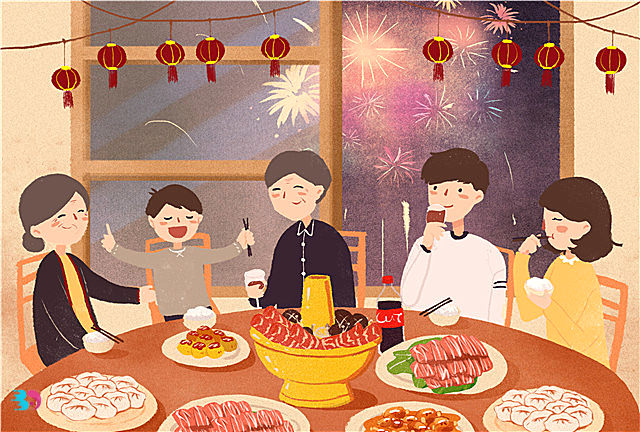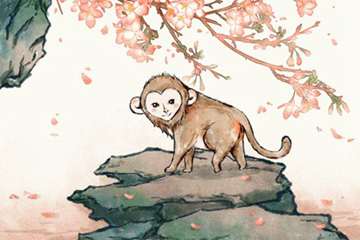carried(carried out)
本文目录一览:
每日一词∣常规巡视 routine disciplinary inspection
十九届中央第四轮巡视将对37个中央和国家机关单位党组织开展常规巡视。The Party organizations of 37 central Party and state institutions are the target of the latest round of routine disciplinary inspection to be carried out by the 19th Communist Party of China (CPC) Central Committee.
2019年9月6日,十九届中央第四轮巡视工作动员部署会召开。(图片来源:新华社)
【知识点】
总书记在《关于中央巡视工作领导小组第一次会议研究部署巡视工作情况的报告》中说:“巡视是党章赋予的重要职责,是加强党的建设的重要举措,是从严治党、维护党纪的重要手段,是加强党内监督的重要形式。”为用好巡视这把“利剑”,中央巡视组根据总书记的指示精神,在巡视的对象、范围上实现了全覆盖。从2013年第一轮巡视开始,逐步建立和完善了组长库制度。2014年3月,开始了专项巡视。目前,常规巡视和专项巡视相结合已成为巡视工作的新常态。对地方以常规巡视为主,辅之以专项巡视;对部门和企事业单位则以专项巡视为主,分领域、分类别开展巡视。当前,巡视已经成为党风廉政建设和反斗争的重要平台,是党内监督和群众监督相结合的重要方式,是上级党组织对下级党组织监督的重要手段,为全面从严治党提供了有力保证。
【重要讲话】
巡视组要当好的“千里眼”,找出“老虎”“苍蝇”,抓住违纪违法线索。要落实监督责任,敢于碰硬,真正做到早发现、早报告,促进问题解决,遏制现象蔓延的势头。
Inspection teams should serve as the \"clairvoyance\" of the CPC Central Committee, find out \"tigers\" and \"flies\", and follow-up clues showing violation of laws and regulations. They should fulfill their responsibility of supervision and not be afraid to crack the hard nuts, in order to ensure early discovery and reporting of problems, thereby helping to solve problems and preventing corruption from spreading.
——2013年4月25日,在中央政治局常委会审议《关于中央巡视工作领导小组第一次会议研究部署巡视工作情况的报告》时的讲话
【相关词汇】
从严治党exercise strict governance of the Party
党内监督与群众监督结合combination of intra-Party supervision and public scrutiny
来源:中国日报网
200句话掌握初中单词(四)(详解版)
151.Fables and novels have a lot in common but usually fables include more wisdom so they pass on from generation to generation .寓言和小说有很多相似之处,但是通常寓言包括了更多的智慧所以他们一代一代流传下来 。
①fable[ˈfeibəl] n.寓言;[总称]神话传说
②novel[ˈnɔvəl] n.(长篇)小说 a.新颖的
③a lot [əˈ lɔt] 很,非常,很多
④common [ˈkɔmən] a.平常的,普通的;共同的,公共的
⑤usually [ˈju:ʒəli] ad.通常,平常
⑥include [inˈklu:d] vt.包括,包含
⑦wisdom [ˈwizdəm] n.明智,正确的判断;智慧,学问
⑧pass [pɑ:s] v.经过;传递;通过;流逝 pass on 传授,传递
⑨from [frəm,frɔm] prep.出自;离;去除;从 from …to … 从……到……
⑩generation [ˌdʒenəˈreiʃən] n.一代人(或产品);产生,发生
152.The real root of the word “china” is none but in China because china was created in various colours by wise Chinese.“陶瓷”这个单词的真正来源就是在中国,因为颜色各异的陶瓷是由聪明的中国人创造出来的。
①real [riəl] a.真的,真正的;真实的,现实的
②root [ru:t] n.根(部);根源
③china [ˈtʃainə] n.瓷器
④none [nʌn] pron.没有一人(或物)
⑤create [kri:ˈeit] vt.创造,创作,创建;引起,产生
⑥various [ˈvɛəriəs] a.不同的,各种各样的;多方面的
⑦wise [waiz] a.有智慧的,聪明的;英明的,明智的
153. Through discussion, only a few students correct their mistakes while 70 percent of students are still confused.通过讨论,只有一部分学生改正了错误,而其他的 70%的学生仍然很困惑。
①through [θru:] prep.穿过;从头到尾;凭借
②discussion [disˈkʌʃən] n.讨论,谈论,论述
③correct [kəˈrekt] a.正确的;合适的,符合的 vt. 改(纠)正
④mistake [misˈteik] n.错误,过失 vt.误解,弄错;误认为
⑤while [wail] conj.当…的时;而;虽然 n.一会儿
⑥percent [pəˈsent] n.百分之一
⑦confused [kənˈfju:z] a. 困惑的; 烦恼的
154.Though he won the victory of the second round of the race, he went pale and felt tired.虽然他赢得了第二轮比赛,但是他脸色苍白,感到十分疲惫。
①though [ðəu] conj. 尽管,虽然
②win [win] vi. 获胜,赢 vt. 获胜;赢得
③victory [ˈviktəri] n.胜利
④round [raund] a.圆的 ad.在周围 prep.大约 n.局
⑤race [reis] n.赛跑;竞争;人种 v.参赛
⑥pale [peil] a.苍白的;淡的
155.The young man stopped in front of the mirror to put his golden tie straight, had a look at his gold watch and walked downstairs to have a supper with his girl friend.这个年轻人在镜子前整理了一下他的金色领带,看了一眼他的金表,走下楼和他的女朋友共进晚餐。
①stop [stɔp, stɑp] v.停止,中断;阻止 n.车站
②in front of 在…前面,在…面前
③mirror [ˈmirə] n.镜 vt.反映,反射
④golden [ˈgəuldən] a.金(黄)色的;金的,金制的;极好的
⑤tie [tai] vt.扎;系;连接 n.领带
⑥straight [streit] a.直的;连续的;直率的
⑦have a look at 看一看……
⑧gold [gəuld] n.(黄)金;金色 a.金的,金制的
⑨downstairs [ˈdaunˈstɛəz] ad.在楼下,往楼下 a.楼下的 n.楼下
⑩supper [ˈsʌpə] n.晚餐 have a supper 吃晚餐
156. Since we have no ropes at hand, where do you suppose that we ought to hang these spare clothes that we have just washed?既然我们手上没有绳子,你认为我们应该在哪里挂这些刚洗好的衣服.
①since [sins] conj./ prep.从…以后;因为
②rope [rəup] n.绳,索
③at hand 在手边; 即将到来; 在附近
④suppose [səˈpəuz] vt.料想,以为;假定;期望,认为应该
⑤ought to [ˈɔ:t tə] aux. v.应当,应该
⑥hang [hænd] vt.悬挂,吊;吊死 vi.悬挂,垂下
⑦spare [speə] a.备用的;多余的 vt.抽出(时间)
⑧wash [wɔʃ] vt.洗;冲 vi.洗衣等
157. Unit Six is on Page 56, and you can find many useful figures about this item.第六单元在 56页上,你可以找到关于这个项目的有用的数字。
①unit [ˈju:nit] n.单元;部件,元件,装置;单位
②page [peidʒ] n.页,张
③useful [ˈju:sfəl] a.有用的,有益的
④figure [ˈfigə] n.数字;轮廓 vt.计算
⑤item [ˈaitəm] n.条(款),项目
158.The shower is coming for there are a lot of dark clouds in the sky. So you had better carry an umbrella with you.天空上乌云密布,马上就要下阵雨了,你最好随身带一把伞。
①shower [ˈʃauə] n./ v.淋浴(器);阵雨(般落下),倾注
②for [fɔ:] conj.因为
③dark [dɑ:k] a.暗的,黑色的;深色的 n.[the~]黑暗(夜)
④cloud [klaud] n.云;一群;阴影
⑤sky [skai] n.天(空)
⑥had better 应该,还是…好,最好(做)……
⑦carry [ˈkæri] vt.提;运送;传播;携带
⑧umbrella [ʌmˈbrelə] n.伞,雨伞
159. After he won the indoor bicycle race, he received an award of a computer with 23 inch screen.在他赢得室内自行车比赛之后,他得到了一台有 23寸屏幕的电脑作为奖励。
①indoor [ˈindɔ:] a.(在)室(户)内的 ad.[-s]在室(户)内
②bicycle [ˈbaisik(ə)l] n.自行车 vi.骑自行车
③race [reis] n.赛跑;竞争;人种 v.参赛
④receive [riˈsi:v] vt.收到;受到
⑤award [əˈwɔ:d] n.奖(金) vt.授予,给予;判给
⑥inch [intʃ] n.英寸
⑦screen [skri:n] n.屏幕;屏风,帘,纱窗 vt.掩蔽
160.What they argued about finally led to fight, so their son had no choice but to beg police for help.他们的争论最终演变成打架,他们的儿子不得不向警察求助。
①argue [ˈɑ:gju:] vi.争论(吵,辩) vt.主张;说服 argue about sth 争论…
②finally [ˈfainəli] ad.最后,终于
③lead [li:d] v.带路;领导;致使;通向 n.领导 lead to 导致;导向
④fight [fait] n.战斗,打架,斗争
⑤son [sʌn] n.儿子,孩子
⑥choice [tʃɔis] n.选择(权);供选择的东西
⑦beg [beg] v.恳求,请求;乞讨,乞求 beg sb for sth 向某人乞求某事
161.He joined in the junior tennis club at the age of 5, and his aim was to be well-known throughout the world as a tennis player.他 5岁加入了这个青少年网球俱乐部,他的目标是成为一名举世闻名的网球运动员。
①join [dʒɔin] v.参加,加入;连接
②junior [ˈdʒu:niə] a.年少的;资历较浅的 n.年少者;晚辈
③tennis [ˈtenis] n.网球
④club [klʌb] n.俱乐部;棍棒,球棒
⑤age [eidʒ] n.年龄;时代(期) at the age of 在……的年龄
⑥aim [eim] n.目的 vt.瞄准 vi.(at,for)瞄准
⑦well-known [ˌwelˈnəun] a.众所周知的,著名的
⑧throughout [θru(:)ˈaut] prep.遍及;贯穿 ad.到处;自始至终
162. If you hold a plot of ice, the message of cool feeling will be carried from the skin to the brain.如果你握着一块冰,感觉凉爽的信号就由皮肤带给了大脑。
①hold [həuld] v.拿;保持;掌握;主持
②plot [plɔt] n.故事情节;密谋;小块土地
③ice [ais] n.冰,冰块
④message [ˈmesidʒ] n.信息,便条,口信
⑤cool [ku:l] a.凉(快)的;冷静(淡)的 v.冷却
⑥feeling [ˈfi:liŋ] n.感情,体谅,同情;感觉
⑦skin [skin] n.皮(肤);毛皮;外皮
⑧brain [brein] n.脑,脑髓
163. To our amusement, this model from Paris has formed a habit of wearing a pair of thin stocking even in winter in order to look attractive.令我们感到有趣的是,这个来自巴黎的模特为了引人注目养成了在冬天穿薄的长袜的习惯。
①amusement [əˈmju:zmənt] n;文娱设施 to one’s amusement 令人感到有趣的是
②model [ˈmɔdl] n.模型;模特儿 a.模范的
③form [fɔ:m] n.形式;外形;表格 v.形(构)成,产生
④habit [ˈhæbit] n.习惯,习性 form a habit 形成一个习惯
⑤a pair of 一对;一双
⑥thin [θin] a./ ad.薄,细,瘦;稀薄(的)
⑦stocking [ˈstɔkiŋ] n.长袜
⑧even [ˈi:vən] ad.甚至
⑨winter [ˈwintə] n.冬,冬季
⑩in order to 为了(做某事)
11attractive [əˈtræktiv] a.吸引的,有吸引力的,引起注意的
164. The silly boy thought that if he mixed cream with jam and put it in the fridge for some time, he would get much ice cream.这个傻男孩认为只要将奶油和果酱混合起来,放进冰箱一段时间,他就能得到许多冰激凌了。
①silly [ˈsili] a.傻的,糊涂的
②mix [miks] vt.配制;混淆 vi.相混合
③cream [kri:m] n.奶油(食品);乳霜(膏)
④jam [dʒæm] n.果酱;拥挤;卡住 vt.塞进
⑤fridge [frɪdʒ] n. 电冰箱
165. After such a serious traffic accident, he was still alive because he wore the safety belt.在如此严重的交通事故之后,因为他戴着安全带所以他仍然活着。
①such [sʌtʃ] a.这样的 ad.那么
②serious [ˈsiəriəs] a.严重的;重要的;认真的;严肃的
③traffic [ˈtræfik] n.交通(量);(非法)交易
④accident [ˈæksidənt] n.意外遭遇,事故;意外(因素)
⑤alive [əˈlaiv] a.活着的;存在的;活跃的
⑥safety ['seɪftɪ] n. 安全, 安全设备, 保险
⑦belt [belt] n.腰带,皮带
166.Ocean and sea are different from each other, because the ocean is far away from the land while the sea is close to the land. Hence, to some degree, the Pacific belongs to ocean rather than sea.洋和海是不一样的,因为洋是远离陆地的地方而海是靠近陆地的地方。因此,在某种程度上,太平洋属于洋而非海。
①ocean [ˈəuʃən] n.洋,海洋
②sea [si:] n.海,海洋
③each other [ˈi:tʃ ˈʌðə] 互相
④far away from 远离……
⑤land [lænd] n.陆地;土地;国家
⑥while [wail] conj.当…的时;而;虽然
⑦close [kləuz] v.关;(使)接近 a.近的 ad.接近地 be close to 离……近
⑧hence [hens] adv.因此,所以;今后,从此
⑨degree [diˈgri:] n.度,度数;程度 to some degree 在某种程度上, 在一定程度上
⑩belong [biˈlɔŋ] vi.应归入;适应;(to)属于 belong to 属于
〈11〉rather than 与其…倒不如,不是…而是
167.If you want to get the occupation in this advertisement company, sign your name on the straight line.如果你想在这个广告公司里得到职务,请在横线处签上你的名字。
①occupation [ˌɔkjuˈpeiʃən] n.工作,职业
②advertisement [ədˈvə:tismənt] n.广告,公告,启事;广告活动
③company [ˈkʌmpəni] n;陪伴;同伴(们)
④sign [sain] v.签(署) n.标记,符号;招牌;迹象
⑤line [lain] n.(界)线;条纹;方针;线路 on the line 在电话(线)上
⑥straight [streit] a.直的;连续的;直率的
168.The customer dialed the company’s telephone number to know why all these free taps couldn't work at all.客户拨打了公司的电话,想知道为什么这些免费的水龙头根本无法使用。
①customer [ˈkʌstəmə] n.顾客,主顾
②dial [ˈdaiəl] vt.拨(号),打电话
③number [ˈnʌmbə] n.数字;号码[常略作N o.]号
④free [ˈfri:] a./ ad.自由的(地);免费的(地) vt.解放
⑤tap [tæp] n. 轻拍, 轻敲, 轻叩 v. 轻拍, 轻敲, 轻叩
⑥at all [用于否定句]丝毫,一点 not at all 一点也不
169. After her leader talked with her and told her to repeat the task, she felt very upset.在她的领导和她谈话并让她重复任务之后,她感到很不安。
①leader [ˈli:də] n.领袖,领导者
②repeat [riˈpi:t] v./n.重复,重说,重做
③task [tɑ:sk] n.任务,工作,作业
④upset [ʌpˈset] vt.心烦意乱;搅乱 n.不安(适) a.心烦的
170. Would you mind shutting the door? I smell something unusual outside the room.你介意我关门吗,我在门外闻到一些异味。
①Would you mind + (sb’s) doing 你介意(某人)做……吗?
②shut [ʃʌt] v.关,闭
③smell [smel] n.气味;嗅觉 vi.散发 vt.闻到;察觉
④unusual [ʌnˈju:ʒuəl] a.不平常的,少有的;与众不同的,独特的
⑤outside [ˈautˈsaid] prep./ n./ ad./ a.(在,向)的外面(的)
171. The chicken farm on the hill is in the distance so it is impossible for you to return on foot before the night.位于山丘上的养鸡场很远,所以你不可能在天黑前徒步回来的。
①chicken [ˈtʃikən] n.小鸡,鸡肉
②farm [fɑ:m] n.农场,饲养场,畜牧场
③hill [hil] n.小山,山岗,高地
④distance [ˈdistəns] n.距离,间距;遥远,远方 in the distance 在远处
⑤impossible [imˈpɔsəbəl] a.不可能的
⑥return [riˈtə:n] v.返回;恢复;归还 n.返回
⑦foot [fut] n.脚,足;英尺 on foot 步行地
172. She pulled the door open and hurried inside to find the answers to this quiz.她推开门,匆匆跑进去找这次测试的答案。
①pull [pul] v.拉,拖,拔;移动 n.拉,拖;拉(引)力
②hurry [ˈhʌri] vi.匆忙 vt.催促;急运(派) n.急(匆)忙
③inside [inˈsaid] ad./ prep.在…里面;少于 n./ a.里面(的)
④answer [ˈɑ:nsə] n.回答;答案 v.回答;解答;响应 answer to … ……的回答
⑤quiz [kwiz] n.智力竞赛;小测验
173.The temperature in summer will be above 38 degrees while in winter it will be below the zero.夏天的气温将会超过 38度,然而到了冬天,气温就降到零度以下。
①temperature [ˈtemp(ə)ritʃə] n.温度,体温;热度,发烧
②summer [ˈsʌmə] n.夏天,夏季
③above [əˈbʌv] prep.在…上方;多(大,高)于 ad.在上面
④degree [diˈgri:] n.度,度数;程度;学位
⑤winter [ˈwintə] n.冬,冬季
⑥below [biˈləu] prep.在…下;[地位等]低于 ad.在下面
⑦zero [ˈziərəu] num.零 n.零点,零度
174. It is predicted that the number of readers will continue to reduce so the leader decided to stop selling this kind of magazine forever.预计读者数量将会继续减少,领导决定永远停止出售这种杂志。
①predict [priˈdikt] vt.预言,预测,预告
②the number of ……的数量
③reader [ˈri:də] n.读者
④continue [kənˈtinju:] v.继续,延续
continue to do sth继续去做某事。 表示继续去做与目前所做的事情不同的另一件事情。
continue doing sth表示继续去做同一件事情
⑤reduce [riˈdju:s] vt.减少,缩小
⑥leader [ˈli:də] n.领袖,领导者
⑦decide [diˈsaid] v.决定,判断;(使)决定 decide to do sth 决定做……
⑧stop [stɔp] v.停止,中断;阻止
stop doing sth 停止正在做的事
stop to do sth (停止正在做的事)去做另一件不同的事
⑨sell [sel] v.卖,出售,推销
⑩kind [kaind] n.种类 a.亲切的,和蔼的,仁慈的 a/the/this kind of 这种;一种
11magazine [ˌmægəˈzi:n] n.杂志,期刊
12forever [fəˈrevə] ad.永远,老是
175.Although both juice and coffee are drinks, neither juice nor coffee can take the place of water.虽然果汁和咖啡都是饮料,但两者都无法取代水。
①although [ɔ:lˈðəu] conj.虽然,尽管
②both … and … ……和……都
③juice [dʒu(:)s] n.汁,液
④coffee [ˈkɔfi] n.咖啡
⑤drink [driŋk] n.饮料,酒 v.饮,喝(酒等)
⑥neither [ˈnaiðə] pron.(两者)无一个 ad.也不
neither … nor … 既不……,也不……
⑦take the place of 代替,取代
176.The student thought the course is very boring so he began to play some trick on his deskmate.这名学生认为这门课程很无聊,所以他开始去恶作剧他的同桌。
①course [kɔ:s] n.课程;过程;做法;路线
②boring [ˈbɔ:riŋ] a.令人厌烦的,乏味的,无聊的
③trick [trik] n.诡计;诀窍;戏法
play trick on sb 开……的玩笑
④deskmate ['desk,meɪt] n. 同桌
177. Every time I passed this way, I walked with a quick step because I was afraid the dog might bite me even though it was lock.每次我经过这条路,我都加快脚步,因为我恐怕那条狗可能会要我即使它被锁住了。
①pass [pɑ:s] v.经过;传递;通过;流逝
②quick [kwik] a.快的;灵敏的;性急的
③step [step] n.(脚)步;步骤;台阶 vi.行走;踏上
④afraid [əˈfreid] a.害怕(恐惧)的;恐怕,遗憾的
I’m afraid that … 我恐怕……
⑤might [mait] aux. v.[may的过去式];可能
⑥bite [bait] v.咬,叮 n.咬,叮
⑦even though 即使; 虽然
⑧lock [lɔk] v.锁上;卡住 n.锁
178. Both his teachers and parents thought he was very foolish because he couldn’t count up to ten at an early age.他的老师和父母都认为他很傻,因为他小时候数数都数不到十。
①parent [ˈpɛərənt] n.父亲,母亲,家长
②foolish [ˈfu:liʃ] a.愚蠢的,荒谬的,可笑的
③count [kaunt] vt.计算;认为 vi.计算
count up to数到……
④age [eidʒ] n.年龄 at … age 在……年龄
179. When the danger comes, the male elephants will form a circle and shake their big ears to protect their children.当危险来临时,雄性大象会形成一个圈,然后摇动他们的大耳朵来保护他们的孩子。
①danger [ˈdeindʒə] n.危险;危险事物,威胁
②male [meil] a.男(性)的,雄的 n.男子
③elephant [ˈelifənt] n.象
④form [fɔ:m] n.形式;外形;表格 v.形(构)成,产生
⑤circle [ˈsə:kəl] n.圆(圈);界,阶层
⑥shake [ʃeik] n./v.摇动,摇;(使)颤抖,震动
⑦ear [iə] n.耳,耳朵
⑧protect [prəˈtekt] vt.保护,保卫
180. My brown bicycle went wrong at the top of the hill so I had to push it all way down. 我的棕色的自行车在山丘顶上坏了,所以我不得不把他一路推下来。
①brown [braun] a.棕色的,褐色的 n.棕色,褐色
②bicycle [ˈbaisik(ə)l] n.自行车 vi.骑自行车
③go wrong 出错,犯错误;发生故障,出毛病
④top [tɔp] n.顶;上部 a.最高的 at the top of 在……的顶部
⑤hill [hil] n.小山,山岗
⑥push [puʃ] v./ n.推,按;推动,促进;催逼
181. Though the honest boy was born in Africa, he went to America by ship and wished that he could rely on himself in America.虽然这个诚实的男孩出生于非洲,但他坐船来到美国并希望在美国能自力更生。
①honest [ˈɔnist] a.诚实的,正直的;坦诚的
②born [bɔ:n] a.出生的,产生的;天生的
③Africa [ˈæfrikə] n.非洲
④America [əˈmerikə] n.美洲;美国
⑤ship [ʃip] n.船(舶),舰 by ship 坐船地
⑥wish [wiʃ] vt.希望;祝愿 vi.盼望 n.愿望[ pl.]祝愿
⑦rely [riˈlai] vi.(on)依靠,依赖;信赖,指望 rely on sb/sth 依靠,依赖……
182. They still remembered that after dinner, they ever used to play Chinese chess under the street lamp while eating the pears.他们仍记得以前常常在晚饭过后,坐在路灯下边下象棋边吃梨的情景。
①remember [riˈmembə] v.记得,记住
②dinner [ˈdinə] n.正餐,主餐
③used to do sth 过去常常…
④chess [tʃes] n.国际象棋 play chess 下国际象棋
⑤under [ˈʌndə] prep./ ad.在…下面
⑥lamp [læmp] n.灯
⑦pear [pɛə] n.梨(树)
183. Although I had read the book several times, I still failed to understand its title.虽然我已经把这篇文章读了几遍,但我仍无法理解他的标题。
①several [ˈsevərəl] a.几个,若干,数个
several times 若干次
②fail [feil] vi.失败;失灵 vt.没有通过 fail to do sth 做……失败
③understand [ˌʌndəˈstænd] v.理解,懂;意识到
④title [ˈtaitl] n.题目;称号,头衔
184. The weather throughout the world becomes more changeable so the scientist decided to adopt new ways to forecast it.全世界的天气都变化多端,所以科学家决定采取新的方法来预报。
①weather [ˈweðə] n.天气,气象
②throughout [θru(:)ˈaut] prep.遍及;贯穿 ad.到处;自始至终
③become [biˈkʌm] vi.变成,开始变得
④changeable [ˈtʃeindʒəbəl] a.易变的;可换的
⑤adopt [əˈdɔpt] vt.收养;采取(纳,用);
⑥way [wei] n.方法;路
⑦forecast [ˈfɔ:kɑ:st] n./vt.预测,预报
185. The river is not only wide but also about eight kilometers in length so you can always see a lot of boats on it.这条河不仅宽而且有 8000米长,所以你总能看见许多小船在河上。
①river [ˈrivə] n.河,江,川
②not only … but also … 不仅……,而且……
③wide [waid] a.宽阔的;广泛的
④kilometer [ˈkiləˌmi:tə] n.千米,公里
⑤length [leŋθ] n.长,长度,距离
⑥boat [bəut] n.船,小船
186. You will certainly go mad if you continue to work in such a noisy place.如果你继续在如此喧嚣的环境中工作,你一定会疯掉的。
①certainly [ˈsə:tənli] ad.必定,一定;当然
②mad [mæd] a.疯的;恼火的;狂热的 go mad 发疯
③continue [kənˈtinju:] v.继续,延续
④noisy [ˈnɔizi] a.嘈杂的,喧闹的
187. The net was broken so the wild animal must have escaped from the hole on the net .由于网破了,野生动物肯定从这张网的洞里逃走了。
①broken ['brəʊkən] adj. 坏掉的, 断掉的, 打破的
②wild [waild] a.野生的;荒凉的;狂热的;野蛮的
③must have + V过去分词 表示对过去事实的推测
④escape [iˈskeip] vi.逃跑;逸出 vt.逃避,避开
⑤hole [həul] n.洞,孔眼,洞穴
⑥net [net] n.网(状系统)
188. As the saying goes, “Strike the iron while it is hot.” Since you have left the last step of the task, why not finish it tonight?既然你还剩下任务的最后一步,为什么不在今晚完成他呢。
①saying ['seɪɪŋ] n. 说话, 发表言论; 格言, 谚语, 警句
②strike [straik] v./ n.罢工;袭击;打;折磨
③iron [ˈaiən] n.铁;烙铁,熨斗
④leave [li:v] v.出发;离开;留下
⑤last [lɑ:st] a.刚过去的;最后的
⑥step [step] n.(脚)步;步骤;台阶 vi.行走;踏上
⑦task [tɑ:sk] n.任务,工作,作业
⑧Why not + V原 = Why don’t you + V原 为什么不(做……)
⑨finish [ˈfiniʃ] v.完成结束
⑩tonight [təˈnait] n.今晚
189. It is generous of you to share the delicious seafood with us and in return we will send you some foreign sweets.你能和我们分享这些可口的海鲜,真是太慷慨了。作为回报,我们送你一些海外的糖果。
①generous [ˈdʒenərəs] a.慷慨的;宽厚的
②share [ʃeə] v.分享,分担;分配
③delicious [diˈliʃəs] a.美味的,芬芳的
④seafood [ˈsi:ˌfu:d] n. 海产食品, 海味
⑤in return 作为回报,作为报答;反过来
⑥send [send] vt.送,寄;派遣,打发;发送
⑦foreign [ˈfɔrin] a.外国的;对外的
⑧sweet [swi:t] a.甜的;可爱的 n.[ pl.]糖果
190. Before she threw these useless files into the litter bin, the secretary took the pins away for the future use.在把无用的文件扔进废纸箱以前,这位秘书拿走了上面的别针以便以后使用。
①throw [θrəu] vt.扔;使突然陷入;使困惑
②useless [ˈju:sləs] a.无用的,无价值的,无效的
③file [fail] n.档案;文件夹
④litter [ˈlitə] n.废弃物;一窝;杂乱的东西 v.乱扔东西
⑤bin [bin] n.垃圾箱
⑥secretary [ˈsekrətəri] n.秘书;书记;部长,大臣
⑦pin [ˈpin] n.别针;徽(像)章;钉子
⑧future [ˈfju:tʃə] a.将来的 n.将来,未来
191. It is a pity that all the tickets for the airline from Beijing to Shanghai have been sold out .很遗憾所有从北京到上海的机票都卖完了。
①pity [ˈpiti] n.同情,怜悯;遗憾 vt.同情,怜悯
②ticket [ˈtikit] n.票,车票
③airline [ˈɛəlain] n. 航线; 最短距离; 航空公司
④sell [sel] v.卖,出售,推销 sell out 售完,脱销
192. She was a bit sad when she read the headline of the newspaper.当他读了报纸的把标题后,有点悲伤。
①a bit 多少,有点儿
②sad [sæd] adj. 悲哀的; 糟透了的; 令人悲痛的
③headline [ˈhedlain] n.大字标题;[ pl.]新闻提要
④newspaper [ˈnju:sˌpeipə] n.报纸
193. As a top student, you should feel a deep sense of shame for you haven’t handed in your homework for several days.作为一名优等生,你应该为几天没上交作业感到羞耻。
①top [tɔp] n.顶;上部 a.最高的
②feel [fi:l] vi.觉得;给人以…感觉 vt.摸;认为
③deep [di:p] a.深(厚,切,刻,奥)的 adv.深深地,在深处
④sense [sens] n.感官(觉);判断力,见识;意思 vt.觉得
a sense of ……感(例:a sense of humor 幽默感)
⑤shame [ʃeim] n.羞耻;可惜 vt.使丢脸
⑥hand [hænd] vt.交,递 hand in 上交
194. The mother had lay the table and hoped that his son would knock at the door as soon as possible.这位母亲已经布置好了餐桌,希望他的儿子尽快敲门。
①lay [lei] v.置放;铺;产(蛋,卵);设置
②table [ˈteibəl] n.桌(台)子;表格
③knock [nɔk] V./n.敲,打;碰撞,撞击
knock at the door 敲门
195. Finally the scientist not only discovered a new disease but also invented new medicine against it.最后,这名科学家不仅发现了一种新型疾病,而且还发明了新药来治它。
①finally [ˈfainəli] ad.最后,终于
②discover [disˈkʌvə] vt.发现,找到,发觉
③disease [diˈzi:z] n.病,疾病
④invent [inˈvent] vt.发明,创造
⑤medicine [ˈmedisin] n.内服药;医学
⑥against [a·geinst] prep. 相反; 逆着; 反对
196. Even in his fifties, the old man still keeps getting up early and having a walk for one hour in order to keep fit.甚至在他50几岁时,这位老人仍坚持早起,慢走一个小时以保持健康。
①in sb’s + 整十位基数词的复数形式(≥20) 在某人几十多岁的时候
②keep [ki:p] v.(使)保持,(使)继续;阻止
keep doing sth 不停的做……
③get up 起床
④early [ˈə:li] a.早(期)的,在前的
⑤have a walk 散散步
⑥in order to do sth 为了(做某事)
⑦keep fit 保持健康
⑥lamp [læmp] n.灯
⑦pear [pɛə] n.梨(树)
183. Although I had read the book several times, I still failed to understand its title.虽然我已经把这篇文章读了几遍,但我仍无法理解他的标题。
①several [ˈsevərəl] a.几个,若干,数个
several times 若干次
②fail [feil] vi.失败;失灵 vt.没有通过 fail to do sth 做……失败
③understand [ˌʌndəˈstænd] v.理解,懂;意识到
④title [ˈtaitl] n.题目;称号,头衔
184. The weather throughout the world becomes more changeable so the scientist decided to adopt new ways to forecast it.全世界的天气都变化多端,所以科学家决定采取新的方法来预报。
①weather [ˈweðə] n.天气,气象
②throughout [θru(:)ˈaut] prep.遍及;贯穿 ad.到处;自始至终
③become [biˈkʌm] vi.变成,开始变得
④changeable [ˈtʃeindʒəbəl] a.易变的;可换的
⑤adopt [əˈdɔpt] vt.收养;采取(纳,用);
⑥way [wei] n.方法;路
⑦forecast [ˈfɔ:kɑ:st] n./vt.预测,预报
185. The river is not only wide but also about eight kilometers in length so you can always see a lot of boats on it.这条河不仅宽而且有 8000米长,所以你总能看见许多小船在河上。
①river [ˈrivə] n.河,江,川
②not only … but also … 不仅……,而且……
③wide [waid] a.宽阔的;广泛的
④kilometer [ˈkiləˌmi:tə] n.千米,公里
⑤length [leŋθ] n.长,长度,距离
⑥boat [bəut] n.船,小船
186. You will certainly go mad if you continue to work in such a noisy place.如果你继续在如此喧嚣的环境中工作,你一定会疯掉的。
①certainly [ˈsə:tənli] ad.必定,一定;当然
②mad [mæd] a.疯的;恼火的;狂热的 go mad 发疯
③continue [kənˈtinju:] v.继续,延续
④noisy [ˈnɔizi] a.嘈杂的,喧闹的
187. The net was broken so the wild animal must have escaped from the hole on the net .由于网破了,野生动物肯定从这张网的洞里逃走了。
①broken ['brəʊkən] adj. 坏掉的, 断掉的, 打破的
②wild [waild] a.野生的;荒凉的;狂热的;野蛮的
③must have + V过去分词 表示对过去事实的推测
④escape [iˈskeip] vi.逃跑;逸出 vt.逃避,避开
⑤hole [həul] n.洞,孔眼,洞穴
⑥net [net] n.网(状系统)
188. As the saying goes, “Strike the iron while it is hot.” Since you have left the last step of the task, why not finish it tonight?既然你还剩下任务的最后一步,为什么不在今晚完成他呢。
①saying ['seɪɪŋ] n. 说话, 发表言论; 格言, 谚语, 警句
②strike [straik] v./ n.罢工;袭击;打;折磨
③iron [ˈaiən] n.铁;烙铁,熨斗
④leave [li:v] v.出发;离开;留下
⑤last [lɑ:st] a.刚过去的;最后的
⑥step [step] n.(脚)步;步骤;台阶 vi.行走;踏上
⑦task [tɑ:sk] n.任务,工作,作业
⑧Why not + V原 = Why don’t you + V原 为什么不(做……)
⑨finish [ˈfiniʃ] v.完成结束
⑩tonight [təˈnait] n.今晚
189. It is generous of you to share the delicious seafood with us and in return we will send you some foreign sweets.你能和我们分享这些可口的海鲜,真是太慷慨了。作为回报,我们送你一些海外的糖果。
①generous [ˈdʒenərəs] a.慷慨的;宽厚的
②share [ʃeə] v.分享,分担;分配
③delicious [diˈliʃəs] a.美味的,芬芳的
④seafood [ˈsi:ˌfu:d] n. 海产食品, 海味
⑤in return 作为回报,作为报答;反过来
⑥send [send] vt.送,寄;派遣,打发;发送
⑦foreign [ˈfɔrin] a.外国的;对外的
⑧sweet [swi:t] a.甜的;可爱的 n.[ pl.]糖果
190. Before she threw these useless files into the litter bin, the secretary took the pins away for the future use.在把无用的文件扔进废纸箱以前,这位秘书拿走了上面的别针以便以后使用。
①throw [θrəu] vt.扔;使突然陷入;使困惑
②useless [ˈju:sləs] a.无用的,无价值的,无效的
③file [fail] n.档案;文件夹
④litter [ˈlitə] n.废弃物;一窝;杂乱的东西 v.乱扔东西
⑤bin [bin] n.垃圾箱
⑥secretary [ˈsekrətəri] n.秘书;书记;部长,大臣
⑦pin [ˈpin] n.别针;徽(像)章;钉子
⑧future [ˈfju:tʃə] a.将来的 n.将来,未来
191. It is a pity that all the tickets for the airline from Beijing to Shanghai have been sold out .很遗憾所有从北京到上海的机票都卖完了。
①pity [ˈpiti] n.同情,怜悯;遗憾 vt.同情,怜悯
②ticket [ˈtikit] n.票,车票
③airline [ˈɛəlain] n. 航线; 最短距离; 航空公司
④sell [sel] v.卖,出售,推销
sell out 售完,脱销
192. She was a bit sad when she read the headline of the newspaper.当他读了报纸的把标题后,有点悲伤。
①a bit 多少,有点儿
②sad [sæd] adj. 悲哀的; 糟透了的; 令人悲痛的
③headline [ˈhedlain] n.大字标题;[ pl.]新闻提要
④newspaper [ˈnju:sˌpeipə] n.报纸
193. As a top student, you should feel a deep sense of shame for you haven’t handed in your homework for several days.作为一名优等生,你应该为几天没上交作业感到羞耻。
①top [tɔp] n.顶;上部 a.最高的
②feel [fi:l] vi.觉得;给人以…感觉 vt.摸;认为
③deep [di:p] a.深(厚,切,刻,奥)的 adv.深深地,在深处
④sense [sens] n.感官(觉);判断力,见识;意思 vt.觉得
a sense of ……感(例:a sense of humor 幽默感)
⑤shame [ʃeim] n.羞耻;可惜 vt.使丢脸
⑥hand [hænd] vt.交,递 hand in 上交
194. The mother had lay the table and hoped that his son would knock at the door as soon as possible.这位母亲已经布置好了餐桌,希望他的儿子尽快敲门。
①lay [lei] v.置放;铺;产(蛋,卵);设置
②table [ˈteibəl] n.桌(台)子;表格
③knock [nɔk] V./n.敲,打;碰撞,撞击
knock at the door 敲门
195. Finally the scientist not only discovered a new disease but also invented new medicine against it.最后,这名科学家不仅发现了一种新型疾病,而且还发明了新药来治它。
①finally [ˈfainəli] ad.最后,终于
②discover [disˈkʌvə] vt.发现,找到,发觉
③disease [diˈzi:z] n.病,疾病
④invent [inˈvent] vt.发明,创造
⑤medicine [ˈmedisin] n.内服药;医学
⑥against [a·geinst] prep. 相反; 逆着; 反对
196. Even in his fifties, the old man still keeps getting up early and having a walk for one hour in order to keep fit.甚至在他50几岁时,这位老人仍坚持早起,慢走一个小时以保持健康。
①in sb’s + 整十位基数词的复数形式(≥20) 在某人几十多岁的时候
②keep [ki:p] v.(使)保持,(使)继续;阻止
keep doing sth 不停的做……
③get up 起床
④early [ˈə:li] a.早(期)的,在前的
⑤have a walk 散散步
⑥in order to do sth 为了(做某事)
⑦keep fit 保持健康
197. Every Sunday, the little girl has to have a piano lesson after she completes her homework..每个周日,小女孩不得不在完成作业后去上钢琴课。
①piano [piˈænəu] n.钢琴
②have a … lesson 上……课
③complete [kəmˈpli:t] a.完整的;十足的;完成的 vt.完成;使完全
198. In most American families, every family member is responsible for housework except the babies, the ill and the aged.在大多数美国家庭中,除了婴儿,病人和老人外,每个家庭成软都要负责做家务。
①most [məust] ad.最;十分 a.最多的;大部分的 n.大多数
②family [ˈfæməli] n.家,家庭;亲属;家族
③member [ˈmembə] n.成员,会员
④responsible [riˈspɔnsəbəl] a.承担责任的;有责任感的
be responsible for 对……有责任
⑤housework [ˈhauswə:k] n.家务劳动
⑥except [ikˈsept] conj.除了;要不是,但是 prep.除…外
⑦ill [il] a.有病的;坏的;恶意的
⑧aged [eidʒd] a.…岁的;(年)老的
199. Every year on average, five million people all over the world die of smoking so you should give it up as soon as possible.每年,全世界平均有五百人死于吸烟,所以你应该尽早戒烟。
①average [ˈævəridʒ] a.平均的;平常的 n.平均数 on average 平均地
②million [ˈmiljən] num.百万,百万个
③all over the world 全世界
④die [dai] vi.死;停止运行
die of sth 死因存在于人体之上或之内(主要指疾病、衰老等自身的原因)
die from sth 死因不是存在人体之内或之上,而是由环境造成的(主要指事故等方面的外部原因)
⑤smoking [ˈsməukiŋ] n. 吸烟(区)
⑥give up 放弃
200. Students in big cities like to bring the latest high-tech things to school, and feel happy and pleased to show off these things to others.在大城市里的学生喜欢把最新的高科技的事物带到学校来,并且很开心在他人面前炫耀这些东西。
①city [ˈsiti] n.城市,都市
②latest ['leɪtɪst] adj. 最新的; 最迟的; 最近的
③pleased [pli:zd] a.高兴的
④show off 炫耀,卖弄
声明:文章内容来源于网络,如有侵权请联系删除!
Don't get carried away 别飘,别嘚瑟
这人在社会上混呐,一定得时刻谨记着“人外有人、山外有山”的道理。这不,前两天我同事小刘谈了一个大合同,觉得十拿九稳了,就天天在办公室嘚瑟个没完,人都快飘上天了。这时老板就跟他说了一句 : "Calm down, Jack. Don't get carried away. "
看到这句话,大家可别以为老板是在说什么"冷静,别让合同被带跑了",在这里的关键词是"get carried away"这个短语,它的意思是“被某事冲昏了头脑、忘乎所以”,也就是我们常说的"得意忘形"啦,所以老板刚才真正的意思是在说"冷静点儿吧, 杰克, 你可别得意忘形啊。"
be/get carried away使冲昏头脑;使入迷;失去理智;使失去自制力;激动得不知所措,忘乎所以;使…兴奋得失去控制,使…忘形; 得意忘形
【En】to delight or enrapture. 使高兴或着迷。to cause (a person) to lose self-control. 致使一个人失去自控能力。to be so excited, angry, interested etc that you are no longer really in control of what you do or say, or you forget everything else. 激动、生气、感兴趣等以致于你不再能真正控制你的言行,或忘记了其他一切。To do something to an extreme or excessive degree, especially unintentionally. 做某事达到极端或过度的程度,尤指无意中。to become so excited about something that you do not control what you say or do. 对某事过于兴奋,以致于无法控制自己的言行。to cause someone to become very excited and to lose control. 使某人变得非常兴奋,失去控制。means to be so focused on doing something that you don't notice anything else, and lose track of time. It can also mean "to do something more than is necessary." 意思是太专注于做某件事而忽略了其他的事情,忘记了时间。它也可以指“做一些不必要的事”。
【Scenario Listening 场景听力】● It's easy to get carried away when you can do so much with the graphics software.
当你能用图形软件做这么多事情的时候,你很容易忘乎所以。
● The work was pretty easy. I guess I got carried away.
这工作相当容易。所以我想我有点儿做过头了。
● I was so absorbed in my work that I got carried away. I didn't notice how long I had been working. When I finished, I saw that it was already three o'clock!
我太全神贯注于工作了,以至于忘乎所以了。都没有注意到我已经工作了多久。当我做完时,才发现已经三点了!
● At first, I had only planned to spend 50 dollars to buy some pants and a shirt. But I got carried away and spent 250 dollars.
起初,我只打算花50美元买几条裤子和一件衬衫。但我被迷得晕了头,花了250美元。
【Scenario Example 场景示例】● He was carried away by the music.
他被这音乐迷住了。
● I got carried away and started shouting at the television.
我陶醉了,开始对着电视大喊大叫。
● Sorry, I was a little carried away there—I just love talking about my favorite artists!
抱歉,我有点忘乎所以了——我就是喜欢谈论我最喜欢的艺术家!
● The crowd were carried away by his passionate speech.
他那充满的演讲让人们兴奋不已。
● She started getting carried away during her story, frantically describing every detail of what happened.
她讲起故事来忘乎所以,疯狂地描述所发生的每一个细节。
● There's far too much food - I'm afraid I got a bit carried away.
这么多吃的——我兴奋得都有点晕了。
● The manager warned his young players not to get carried away by the emotion of the occasion.
主教练警告年轻队员不要受一时情绪的左右。
● Here, Bill. Take this money and go to the candy store, but don't get carried away.
给你,比尔。拿着这些钱去糖果店,但不要得意得忘乎所以。
● I was just planning to clean the bathroom, but I got carried away and did all the windows and the floors, too.
我正打算打扫浴室,但我太激动了,把所有的窗户和地板也打扫了。
● The problemlver gets carried away by the interest of the idea.
这个问题。求解者会被这个想法所吸引。
● He sometimes would get carried away and invite more than his allotted guests, which generated some irritation among members.
他有时会得意忘形,邀请更多的客人,这在成员中引起了一些不满。
● I get carried away, but I must learn now it's the big league.
我有点儿得意忘形了,但我现在必须知道这是大联盟。
● But are we allowing ourselves to be carried away by false vanity?
但是我们是否允许自己被虚假的虚荣心冲昏头脑呢?
● He must not get carried away in this place, he thought.
他想,他不应该在这个地方忘乎所以。
中考英语复习系列:阅读与词汇(一)
第一部分 阅读与词汇
1、A Young Officer and an Old Soldier
A very new, young officer was at a railway station. He was going to visit his mother, and he wanted to telephone her to tell her the time of his train. He looked in all his pockets, but found that he did not have the coins for the telephone, so he went outside and looked around for someone to help him.
【汉语翻译】
年轻军官与老兵(1)
一位新上任的(new)年轻军官(young officer)在火车站(railway station)候车。他要去看望(visit)他的母亲(mother)。他想打电话(want to telephone sb.)告诉(tell)母亲他的列车(train)到站的时间。但寻遍了所有的口袋(pocket),却发现(find)他没有打电话用的硬币(coin),于是他走到车站外面(outside),环顾四周(look around)想找人帮忙(help)。
2、 A Young Officer and an Old Soldier
At last an old soldier came by, and the young officer stopped him and said,“Have you got change for ten pence?”
“Wait a moment,”the old soldier answered, beginning to put his hand in his pocket.“I'll see whether I can help you.”
“Don't you know how to speak to an officer?”the young man said angrily.“Now let's start again Have you got change for ten pence?”
“No,sir,”the old soldier answered quickly.
【汉语翻译】
年轻军官与老兵(2)
最后(at last)有名老兵(old soldier)路过,年轻的军官拦住他道:“你有十便士(pence)的零钱(change)吗?”
“等会儿(wait a moment)。”老兵回答(answer),开始(begin)把手放(put)进口袋,“让我看看是否(whether)能帮助你。"
"难道你不知道(know)该怎样跟一位长官说话(speak)吗?”年轻人生气地(angrily)说,“现在我们重新开始(start again),你有十美分的硬币吗?”
“没有,长官(sir)。”老兵迅速(quickly)答道。
3、Are You Going to Thank Her?
Mrs. Green has lived near the park of the city for forty years. She's very rich and has got a lot of money. Bur she never buys something expensive for her family and always does all the housework herself. She sweeps all the rooms every day.
Last morning, when she got up, she felt terrible . After breakfast she felt even worse. She found some medicine and took it. But it was useless to her and she had to go to a hospital.
【汉语翻译】
您是要感谢她吗?
格林夫人(Mrs.)在这座城市(city)的公园(park)附近住(live)了四十(forty)年了。她特别富裕(rich),相当有钱(money)。但她从不(never)给自己的家人(family)买昂贵的(expensive)物品,而且总是(always)自己做所有的家务(housework),她每天打扫(sweep)所有的房间。
昨天早上(Last morning)。她起床(get up)时感觉(feel)很糟糕(terrible)。早餐(breakfast)后她觉得更严重(even worse),就找了一些药(medicine)吃了。但还是没用(useless)。她不得不去了医院(hospital)。
4、Are You Going to Thank Her?
The doctor looked her over and asked her to be in hospital, but she refused and went home on foot. As soon as she got home, the telephone rang. She hurried to answer it. It was the doctor. He told her she had left her purse in the hospital and a nurse had found it.
“Could you tell me her name, please?”asked Mrs. Green.
“Of course, Mrs. Green. Are you going to thank her? ”asked the doctor.
“No, no.”She said,“My handbag was lost three years ago. I want to know if she found it. ”
【汉语翻译】
您是要感谢她吗?
医生(doctor)给她作了检查并要求(ask)她住院,但她拒绝(refuse)了,然后步行(on foot)回家。她一(as soon as)到家,电话就响(ring)了,她赶紧(hurry)去接听电话,是医生打来的,他告诉这位女士她的钱包(purse)丢在了医院,一位护士(nurse)捡到了。
“您能告诉我这位护士的名字(name)吗?”格林夫人问道。
“当然可以(of course),格林夫人,您是要感谢(thank)她吗?”医生问道。
“不,不是,”她说:“我的手提包(handbag)三年前(three years ago)丢了,我想问问是不是她检到了。”
5、Sam and Tod
Sam had a dog. Its name was Tod. It was very helpful, but it ate too much. So Sam didn't like it, and he wanted to kill Tod. He tied Tod in a bag and put it in a smallboat. He rowedthe boat to the middle of a big river. Just as he threw the pooranimal into the river, the boat began to go down. Both Sam and Tod fell into the river.
【汉语翻译】
萨姆与托德(1)
萨姆有一只狗(dog)。他的名字叫托德。它很有用(helpful),但它吃的太多(eat too much)。所以萨姆不喜欢他。萨姆想杀死(kill)托德。萨姆把托德绑(tie)在一个袋子里,把它放进一只小船(small boat)。他把船划(row)到一条大河(river)的中央(middle)。他正要(just)把这只可怜的动物(poor animal)扔(throw)下河的时候,船开始下沉,萨姆和托德两个都(both)跌入(fall into)河里。
6、Sam and Tod
Tod was able to swim, but Sam couldn't .The dog bit (咬) therope and got out ofthe bag. It triedi ts best to swim to saveSam. The man was saved, so he was verythankful to the dog. He did not want to kill the dog any more. From then on, he gave the dog as much food as it wanted.
【汉语翻译】
萨姆与托德(2)
托德能(be able to)游泳(swim),但萨姆不会。狗把绳子(rope)咬断,从袋子里出来(get out of the bag)。它竭尽全力(try one's best)游过去救(save)萨姆。萨姆获救了,所以他对托德是非常感激的(thankful).他不再(not… any more)打算杀它了。从那以后(from then on),小狗想要吃多少食物(food)萨姆就给多少。
7、In the Bar
In England, if you are under the age of eighteen, you're not allowed to drink in apublic bar.
Mr. Thompson used to go to a bar near his house, but he never took his son,Tom, because he was too young. Then when Tom had his eighteenth birthday, Mr.Thompson took him to his usual bar for the first time.
【汉语翻译】
在酒吧(1)
在英格兰(England),年龄在18岁以下(under the age of eighteen)的人不允许(be not allowed to do)到公众(public)酒吧里喝酒(drink)。
汤普森先生过去经常(used to)到他家附近(near)的一个酒吧喝酒,但他从不带(take)他的儿子(son)汤姆,因为(because)他还太小(too young)。当汤姆过18岁生日(birthday)时,他第一次(for the first time)带儿子去了他经常去的酒吧(his usual bar)。
8、 In the Bar
They drank for half an hour, and then Mr. Thompson said to his son,“Now, Tom, I want to teach you a lesson, You must always be careful not to drink too much. And how do you know when you've had enough? Well, I'll tell you. Do you seethose twolights at the end of the bar? When they seem to have become four, you've had enough and should go home.”“But, Dad,”said Tom,“I can only see one light at the end of the bar.”
【汉语翻译】
在酒吧
喝了半个小时(half an hour)后,汤普森对儿子说道,“汤姆,现在我给你上一课(teach you a lesson)。你必须(must)要小心(be careful)决不要喝太多。那怎样才能知道你是否已经喝够了(enough)呢?听着,我告诉你。你看见(see)酒吧尽头的(at the end of)那两盏灯(light)了吗?当它们看起来(seem)已经变成(become)四盏的时候,你就喝足了,应该(should)回家(go home)了。”“可是,爸爸,”汤姆说,“我只(only)看见那儿有一盏灯呀!”
7、 A Black Umbrella
Sally was a student. It was going to be her mother's birthday. She wanted to buy her a present that would be nice and useful but not expensive.
A week before her mother's birthday, she went shopping after a quick and lunch. When she had been looking for half an hour, she found a shop that wasselling cheap umbrellas, and decided to take a black one. Her mother hadlost hers the month before.
一把黑伞
萨莉是个学生(student),再过几天就是她母亲的生日了,她想给母亲买(buy) 一个价格不高,但漂亮、实用的(nice and useful)礼物(present)。
在她母亲生日之前(before)的一个星期(week),萨莉匆忙地吃了顿简单的()午餐(lunch)后就出去购物(go shopping)了。看(look)了半个小时后,发现了一个卖(sell)便宜(cheap)雨伞(umbrella)的商店,她决定(decide)买把黑色的(black)伞。一个月(month)之前她母亲把她的伞(hers)丢(lose)了。
9、 A Black Umbrella
She thought,“You could carry that when you are wearing clothes of any color.”So she decided to buy a lovely black umbrella and took it back to the school with her until her classes had finished.
On her way home in the train that evening she felt hungry because she had such a small lunch that she went along to the buffet car(餐车) for a sandwich and a cup ofcoffee.
一把黑伞
她想,“穿(wear)任何颜色(color)的衣服(clothes),都可以携带(carry)黑伞。”于是她决定买把可爱的(lovely)黑伞带回学校(school),直到(until)课(class)结束(finish)时才带回家。
那天晚上(evening).在她乘火车回家的路上(on her way home),因为午餐吃的很少(have such a small lunch).她觉得饿(hungry).于是走进餐车,要了一份三明治(sandwich)和一杯咖啡(a cup of coffee)。
10. Friends (1)
Friends are different things to different people. To my little sister, a friend is someone who likes to swim and ride bikes. My mom's idea of a friend is someone like Mrs. Smith who walks and talks with her every morning. My dad's friends areneighbors who help him with the work like building shelves and planting trees.
朋友(1)
对于不同的人(people),朋友(friend)意味着不同的(different)内容。对于我的小妹妹(littlesister)来说,朋友是喜欢(like)游泳和骑自行车(ride bikes)的某个人(someone)。我妈妈的想法(idea)是朋友像(like)史密斯夫人一样可以每天早上陪她散步(walk)并交谈(talk)。我爸爸的朋友是帮他搭建架子(build shelves)、种树(plant trees)或做其他活的邻居们(neighbors)。
11. Friends (2)
Steve, our monitor, is my best friend We go skating, play football, talk about sports,and go to a concert. When I broke my leg, he always came over to play games; in school, he carried my schoolbag for me and got my lunch for me. I know I can always count on him, and he also knows that he can count on me.
Some friends may be in your life for a while. Others will be there for a longtime, maybe even forever(永远). I would hate to move, unless I could take my friends with me .They are too important to leave behind.
朋友(2)
我们的班长(monitor)史蒂夫是我最好的(best)朋友。我们去滑冰(go skating)、踢足球(play football)、谈论体育(talk about sports)、去听音乐会(go to a concert)。我摔断腿(leg)时,他就来我家玩游戏(game);在学校,他替我拿书包(schoolbag),并帮我打午饭。我知道我总能依靠(count on)他,他也知道他能依靠我。
有些(some)朋友可能(may)只在你的一生中停留一会儿(for a while)。另一些(others)则很长一段时间(for a long time)和你做朋友,甚至有可能(maybe)是终生的朋友。我憎恨(hate)搬家(move),除非(unless)我可以把朋友也带走。他们对我来说太重要了(too important),我无法把他们留下(leave behind)。
12. The“Deaf”Wife
A man is talking to the family doctor.“Doctor, I doubt whether my wife's goingdeaf.”The doctor answers,“Here’s something you can try on her to test her hearing. Stand some meters away from her and ask her a question. If she doesn't answer, move a little closer and ask again. Keep repeating this until she answers.Then you'll be able to tell if she is deaf or not.”
The man goes home and begins to test his wife's hearing. He stands by the wall and says,“My dear, what's for dinner?”He doesn't hear an answer, so he moves closer to her.“My dear, what's for dinner?”Still no answer. He repeats this several times, until he's standing just a few feet away from her.
Finally, she answers,“For the eleventh time, I said we're having meat and rice!”
【汉语翻译】
“耳聋的”妻子
某人对他的家庭医生说,“医生,我怀疑(doubt)我妻子(wife)要聋(deaf)了。”医生回答说,“有个办法可以测试(test)她的听力。你站(stand)在离她几米远(some meters away)的地方,然后问她一个问题(question)。如果她不回答,你再走近点(a little closer),然后再问。如此重复(repeat)直到她听到为止。那时你就可以判断她是否聋了。”
这人回家后便开始测试他妻子的听力。他站在墙的旁边(by the wall)说,“亲爱的(dear),晚饭(dinner)吃什么?”他没听到回答,于是又朝妻子走近了些。“亲爱的,晚饭吃什么?”仍然(still)没有回答。他如此反复了几次(several times).直到他离妻子只有几英尺(a few feet)的地方。
最后(finally),她回答道,“我都说了十一次了,我说咱们要吃肉(meat)和米饭(rice)。”
13、. We Really Don't Know (1)
Jack had gone to the university tostudy his history, but at the end of his second term, he failed his history exam, and he was told that he would bedismissed from university. However, his father decided that he would go to see the history professor(教授)to ask him to let Jack continue his studies the next year.
“He's a good boy,”said Jack's father,“Please pardon him. If you let him pass this time, I'm sure he'll improve a lot next year and pass the examinations at the end of it really well.”
【汉语翻译】
我们真的不知道(1)
杰克去大学(university)里学习(study)历史(history),但在第二学期(term)末,他的历史考试不及格(he failed his history exam).同时他还被告知将被开除(dismiss)。然而(however).杰克的父亲(father)决定去拜访那位历史学教授,请求教授让(let)杰克继续(continue)下一年的学业。
“他是个不错的男孩(boy)。”杰克的父亲(father)说,“请原谅(pardon)他吧!如果这次您能让他通过(pass),我确信(I'm sure)他明年一定会大有长进(improve a lot);而且会在年终时真正地(really)很出色地通过考试。”
14. We Really Don't Know (2)
“No, no, that's quite impossible!”replied the professor immediately.“Do you know, last month I asked him when Napoleon died, and he didn't know!”“Please, sir, give him another chance”said Jack's father.“You see, I'm afraid we don't take any newspapers in our house so we even don't know that Napoleon was illrecently.”
【汉语翻译】
我们真的不知道(2)
“不,不行,那是完全不可能的(quite impossible)。”教授立即(immediately)回答(reply),“您知道吗,上个月我问他拿破仑是什么时候去世(die)的,可他居然不知道!”“先生,请再给他一次机会(give him another chance)吧。”杰克的父亲说道,“您要知道,恐怕(I'm afraid)是因为我们家里没有报纸(newspaper)。因此我们甚至连拿破仑近来(recently)病了(ill)都不知道。”
15. Raymond (1)
Everybody dreams of doing something important. As a boy Raymond dreamed of being a scientist, in fact, he is a postman now.
Raymond is an active young man. He lives by the saying(格言)“If you can't live the life you love, love the life you live”He greets everyone with a big smile and afriendly“Hi, how are you?”And he really wants to know! It's hard to feel unhappy when we hear him whistling(吹口哨) happily up and down the street.
【汉语翻译】
雷蒙德(1)
每个人(everybody)都梦想(dream of)做些重要的事。雷蒙德小时候梦想成为一名科学家(scientist),实际上(in fact)他现在是一名邮递员(postman)。
雷蒙德是个积极主动的(active)年轻人。他信奉的格言是“如果你不能过你热爱的生活,那就热爱你所过的生活。”带着灿烂的微笑(smile),他向每一个人打招呼(greet),还来一句友好的(friendly)问候,“嗨,你好吗?”而且他确实想知道!当我们听到他欢快地吹着口哨在街道(street)上来来往往(up and down)时,想不高兴都难(hard)。
16. Raymond (2)
Raymond looks good. His shirt and trousers always look very clean. After work, he likes going to the gym to take exercise.
Raymond is strict in his work. He cares about the people on this street everyday. Heknocks on Mrs. Jordan's door to ask for a drink of cool water. He's not really thirsty.Mrs. Jordan is old, and he just wants to make sure she's okay.
【汉语翻译】
雷蒙德(2)
雷蒙德看起来(look)很不错。他的衬衫(shirt)和裤子(trousers)总是非常干净(very clean)。下班后,他喜欢去体育馆(gym)锻炼(take exercise)。
雷蒙德对自己的工作要求严格(strict)。他关心(care about)街道上的居民。每天他都会敲(knock on/at)乔丹夫人的门(door)去要一杯凉(cool)水。他不是真的口渴(thirsty)。乔丹夫人年纪大了,他只是想确认(make sure)乔丹夫人一切正常。
17. That's Why!
Jimmy started painting when he was three years old, and when he was five, he was already very good at it. He also got many prizes for his painting. He painted many beautiful and interesting pictures, and people paid a lot of money for them They said,“This boy's going to be famous when he's a little older, and then we’re going to sell these pictures for a lot more money.”
Jimmy's pictures were different from other people's because he never painted it on all of the paper. He painted on half of it, and the other half was always empty.
“That's very clever,”everybody said.“Nobody else does that!”They all believed that the boy was a pioneer in painting.
One day, somebody bought one of Jimmy's pictures and then said to him,“Please tell me this, Jimmy. Why do you paint on the bottom half of your pictures, but not on the top half ?”
“Because I'm small,”Jimmy said,“and my brushes don't reach very high.”
【汉语翻译】
原来如此!
吉米三岁开始画画(start painting),五岁时已经(already)画得相当好了。他还因此获得很多奖(many prizes)。他画了很多美丽(beautiful)有趣的(interesting)图画(picture)。人们付(pay)很多钱(a lot of money)买这些画。他们说:“这个孩子大一点后肯定会出名(be famous).到时我们可以靠这些画赚更多的钱。”
吉米的画不同于(be different from) 他人的画,因为他从来不在整张纸上作画。他只在一半纸上画,另一半总是空的(empty)。
“这真是个聪明的(clever)做法!”大家都说,“没有其他人(nobody else)这么画过。”他们都认为这男孩堪称绘画艺术的先锋(pioneer)。
有一天,有人买了吉米的画,然后问:“请告诉我,吉米,你为什么总是在纸的下半部分(bottom half)画而不在上半部分(top half)画呢?”
吉米说:“因为我个头小,我的画笔(brush)无法够到(reach)那么高(high)。”
18. Living like a Pig (1)
One day, a guru(印度教大师) knew what he would be in his next life. So he called his favorite disciple(徒弟) and asked him what he would do to show thanks. The disciple said he would do whatever his guru asked him to do.
After the guru received the promise, he said,“Then this is what I'd like you to do for me. I've just learned that when I die very soon, I'm going to be born as a pig. Do you see that pig eating rubbish over there in the yard ? I'm going to be born as one of its baby pigs. You’ll recognize(认出) me by a mark on my face . When the baby pigs have been born, find the baby pig with a mark on its face and kill it with yourknife. Then I’ll not live a pig's life. Will you do this for me?”
【汉语翻译】
像猪一样生活(1)
有一天,一位印度教大师知道了他的来生是个什么样子,因此,他召来(call)自己最喜爱的(favorite)徒弟,并问他要做什么来表示感谢。徒弟说无论什么(whatever),只要大师要求,他都会去做。
收到(receive)这项承诺(promise)之后,大师说:“我现在就告诉你我希望你为我做的。我刚刚得知(learn)我就要死了,我会出生(be born)成为一只猪(pig)。你看到正在院子(yard)里吃垃圾(rubbish)的那头猪了吧?我将会是它下一窝猪仔中的一只小猪(baby pig)。你会从我脸(face)上的记号(mark)认出我来.当那些小猪出生以后,你去找脸上有记号的小猪,用你的刀(knife)把它杀死,这样我就不会过猪的生活(live a pig’s life)。你会为我做吗?”
19. Living like a Pig (2)
The disciple was sad to hear all this, but he agreed to do as he had promised.
Soon after this conversation, things happened just as the guru had mentioned. The guru died. Four baby pigs were born. One day, the disciple held his knife with him and picked out the baby pig with a mark on its face. Just as he was about to kill it, the little pig suddenly spoke,“Stop! Don't kill me!”it cried.
The disciple was very surprised, and he heard the little pig speak in a human voice,it said,“Don't kill me. I want to live on as a pig. When I asked you to kill me, I didn't know what a pig's life would be like. It's great! Just let me go.”
【汉语翻译】
像猪一样生活(2)
听到这些徒弟很伤心(sad),但他同意(agree)照大师所说的去做。
事情正和大师提到(mention)的一样。在他们的对话(conversation)之后不久,大师死了,四只猪仔出生了。有一天,徒弟握着(hold)他的刀,挑选(pick out)出脸上有记号的那只小猪。当他正要(be about to)杀掉它时,小猪突然(suddenly)开口说话:“住手!不要杀我!”小猪大喊道。
徒弟非常吃惊(surprised),他听到小猪用人的声音(in a human voice)说:“别杀我!我想要当猪继续活下去。当我要求你杀我时,我并不知道猪的生活将是什么样。猪的生活很棒(great)!就让我活下去吧。”
20. Greenland and Iceland
Greenland is the largest island on earth. It is in the north of Europe. Near Greenland is another island. It is small. Its name is Iceland. Do you think that Greenland is green and warm? Do you think that Iceland is white with ice? If you do, you are wrong. Not many people live on the big island of Greenland. There are more people in your hometown than in all of Greenland. That is because Greenland is not green. Greenland is white. Most of Greenland is covered with lots of ice. The ice covering Greenland is higher than some of the world's buildings. What about Iceland? Is it colder than Greenland? No, it is not. Iceland has ice, but not so much ice asGreenland. Iceland has a Lot of hot springs(温泉). They give out hot water and steam (蒸汽). So it is not as cold as Greenland. And there are a lot more people who live in Iceland.
【汉语翻译】
格林兰岛与冰岛
格林兰岛是世界上(on earth)最大的岛屿(largest island)。它位于欧洲(Europe)的北部(north)。在格林兰岛的附近有另外一个岛。这个岛很小。它的名字叫冰岛。你认为格林兰岛是绿色(green)、温暖的(warm)吗?你认为冰岛是冰(ice)覆盖的白色(white)岛屿吗?如果你这样想,你就错了。格林兰岛上没有很多人居住。你家乡(hometown)的人会比(than)整个格林兰岛的居民都多。那是因为格林兰岛不是绿色的,它是白色的。格林兰岛的大部分(most)覆盖着(be covered with)很多冰。覆盖格林兰岛的冰比这个世界上的一些建筑物(building)还要高。冰岛怎样呢(what about Iceland)?它比格林兰岛还要冷(cold)吗?不,不是的。冰岛有冰,但不像格林兰岛那么多的冰(not so much ice as Greenland)。冰岛有很多温泉。这些温泉放出(give out)热水和蒸汽,因此冰岛不像格林兰岛那样冷(not as cold as Greenland)。而且冰岛的居民远远多于格林兰岛。
21. A Competition of Lying
A certain old gentleman was very unhappy about modern education, and thought that young people didn’t know the difference between right and wrong.
One day he was taking a walk near the church when he saw some young boys standing around a small cat. The old gentlemen went up to the boys and asked them what was happening. One of the boys said to him“We're having a competition. We're telling lies, and the one who tells the biggest lie will keep the cat.”
The old gentleman thought this was a good chance to teach the boys a useful lesson, so he said to them,“I've never told a lie in my life." At once there was a great shout from all the boys, and they said,“You've won! The cat belongs to you!”
【汉语翻译】
说谎比赛
某个(a certain)老年绅士(gentleman)对现代教育(modern education)颇为不满(unhappy),他认为年轻人不知道是非(right and wrong)之间的差异(difference)。
有一天,他在教堂(church)附近散步(take a walk)时,看到一些小男孩围着一只小猫(cat)。这位老绅士凑上前去问孩子们发生(happen)什么事了。有个男孩告诉他:“我们正在进行一场竞赛(competition)。我们在比赛说谎(tell ties),谁说的谎最大,这只猫就是谁的。”
老绅士觉得这是教育孩子们的一个好机会。于是他就对孩子们说:“我这辈子从未说过谎话。”立刻(at once)所有孩子异口同声地大喊(shout):“你赢(win)了!这只猫属于你了(The cat belongs to you)!”
22. Sports in America
In many parts of the world, there are four seasons: spring, summer, fall and winter.There are only three in America: football, basketball and baseball. If you want to know what season it is, just have a look at what people are playing.
Sports are an important part of American culture. Students learn to play many sports at school. They take PE classes. Some join the school teams, and others join school sports leagues(联盟).
For many people in the USA, sports are not just for fun. They're almost a religion (宗教). Thousands of sports fans buy expensive tickets to watch their favorite teams and sports stars play. Other fans watch games on TV at home. The most devoted(投入的) sports fans never miss a game.
【汉语翻译】
美国的体育
世界上许多地方(many parts)有四个季节(season):春(spring)、夏(summer)、秋(fall)、冬(winter)。美国却只有三个:足球、篮球(basketball)和棒球(baseball)。如果你想知道是什么赛季(season),只需看一下人们在玩哪种球即可。
体育是美国文化(American culture)的一个重要部分(part)。学生在校时学习很多体育项目。他们上体育课(PE)。有些学生加入校队(join the school team).还有些学生加入学校体育联盟。
对于许多美国人来说,体育不只是为了玩(for fun)。体育几乎(almost)是一种宗教。成千上万的(thousands of)体育迷(sports fan)购买昂贵的门票(ticket)去观看(watch)他们最喜欢的球队以及体育明星(star)比赛。其他体育迷在家通过电视(on TV)看比赛。最铁杆的体育迷从不会错过(miss) 一场比赛。
23. My Little Sister Candy
Living with my little sister Candy can be hard. Candy is five years old. She always copies me. When I sit in front of my computer, she will touch my keyboard and screen. When I practice handwriting, she’ll stay as long as I do, and if I am playing chess with my friend, she will make so much noise.
She doesn't like dolls as most girls do. She loves model planes, toy guns and robots, but it's easy for her to turn her attention to something else. One moment she is laughing and clapping her little hands;the next she is kicking her plane and then reaching for the edge of the table. That's because she finds some drugs on the table. Of course, the drugs should not be available to her.
Last Sunday, I had a cold, so I tried to get her separated from me. I stayed in my bedroom and asked her to stay in our living room, and then I told very easy riddles for her to answer. At first, she showed great interest in guessing riddles in this way, but later she came to my room, answering me no more but with her mouth open wide, and tried her best to pull me out of my room. At last, I had to take her to walk along the path through our garden.
Candy is always following me, but I love my little sister candy.
【汉语翻译】
我的小妹妹卡迪
和我的小妹妹卡迪住在一起很不容易。卡迪五岁了。她总是模仿我。当我坐在电脑前,她会触摸(touch)我的键盘(keyboard)和屏幕(screen)。当我练习书法(handwriting)时,我呆多久她就呆多久,如果我和朋友下象棋(play chess),她就会制造很多噪音(make so much noise)。
她不像大部分女孩那样喜欢娃娃(doll)。她喜爱飞机模型(model)、玩具枪(toy gun)和机器人(robot),但她的注意力很容易转移。一会儿拍(clap)着小手笑,一会儿又在踢(kick)她的飞机,一会伸手去够桌子的边缘(edge)。那是因为她发现桌子上有一些药(drugs)。当然了,那些药是不应让她得到的(available)。
上个星期天,我感冒了,因此我尽量让她和我分开(separate)。我呆在我的卧室,让她在我们的起居室,然后我说一些很简单的谜语(riddle)让她回答。起初,她对用这种方式猜谜语(guess riddles)很感兴趣,但后来不再回答我,而是来到我的房间,把嘴巴(mouth)张得大大的,竭尽全力地想把我拉出去。最后,我不得不带着她沿着花园中的小路(path)散步。
卡迪总跟着我,但我爱我的小妹妹卡迪。
(整理初中英语网络资源,仅做教学教研之用,尊重原创)
热门推荐
推荐阅读
热门标签
热门精选
- 06-24宝剑骑士逆位(逆位代表什么)
- 06-13八字戌和酉(八字中的戌酉相害是什么意思)
- 07-04寿康宝鉴戒期表(年寿康宝鉴戒期参照表)
- 06-11八字食杀才(什么是食神制杀的八字)
- 06-28琉璃五行属什么(佛教七宝之琉璃)
- 07-06雍姓的来历(什么地方的雍姓的人最多)
- 06-14八字男金4个(五行金多的男人命好吗)
- 06-13八字看李佳琦(为什么李佳琦会火)
- 07-02宝剑五逆位(塔罗宝剑五逆位代表什么意思)
- 06-26打老虎是什么意思(为什么叫打老虎)
风水宝地最新文章



- 01-20carried(carried out)
- 01-20梦到自己哭了(梦到自己哭了真的流眼泪是什么意思)
- 01-19墓地风水(墓地风水最好的方位)
- 01-19尚书中的名言名句(尚书中的名言名句四年级上册)
- 01-19两女一桶
- 01-19孩子脾气暴躁是心理有问题吗(孩子一生气就大吼大叫像疯了)
- 01-19声母韵母表整体认读音节表(声母韵母表整体认读音节表视频教读)
- 01-19窗花的剪法(窗花的剪法教程)
- 01-19阁是什么意思(斋是什么意思骰子)
- 01-19心胸狭隘的男人的表现(心胸狭隘的男人的表现 嫁给这种人后悔一辈子)












